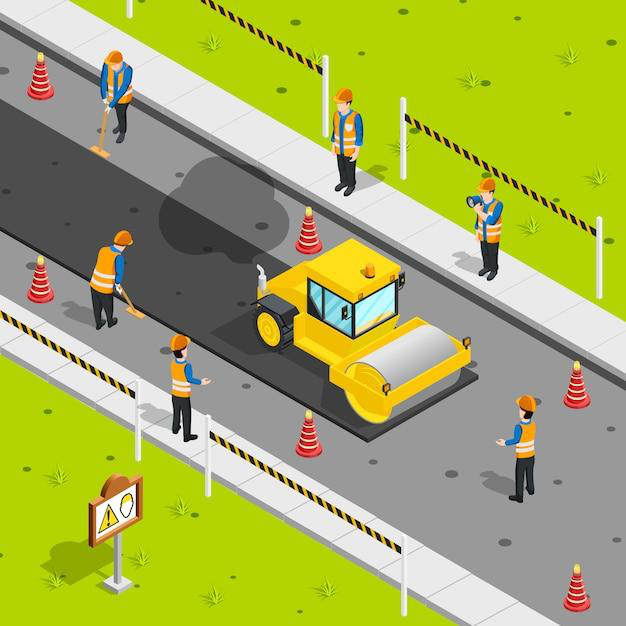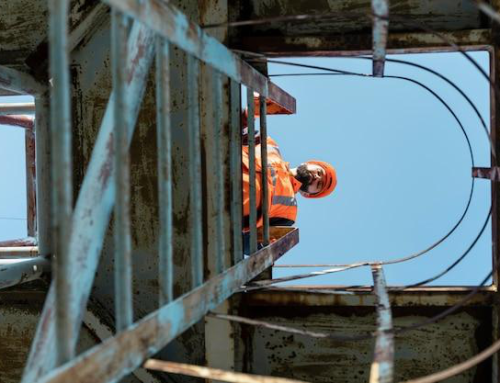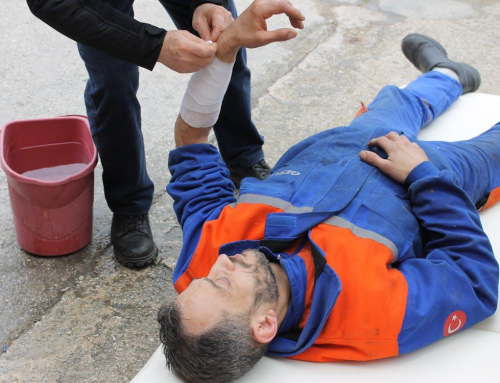High-traffic and complex work zones present unique challenges for Traffic Control Persons (TCPs). These areas are characterized by their heavy vehicle flow, multiple access points, and sometimes hazardous conditions that require the use of specialized equipment and safety protocols. The importance of proper Traffic Control Person (TCP) Training cannot be overstated, as TCPs play a vital role in ensuring the safety of workers, motorists, and pedestrians.
Let’s explore this course in detail.
Core Components of TCP Training at Metro Safety Training
The Traffic Control Person (TCP) Training offered by Metro Safety Training is a comprehensive, two-day course designed to meet the needs of those working in high-risk traffic control environments. The course is a blend of classroom instruction and practical, hands-on training, and is the only program of its kind accepted by WorkSafeBC.
Course Structure and Objectives
Day One: Classroom Training
- Introduction to traffic control, including roles and responsibilities of TCPs, employers, and supervisors
- Overview of regulations and standards, including those set by WorkSafeBC, the Ministry of Transportation, and the Motor Vehicle Act
- Detailed discussion on the types of traffic control equipment and devices, including personal protective equipment(PPE)
- Understanding traffic control signs, signals, and devices
- Setting up, maintaining, and removing work zones in a safe and efficient manner
- Basic traffic control skills and techniques for directing traffic
Day Two: Practical Training
- Hands-on practice in setting up and managing work zones
- Advanced traffic control skills for high-traffic and complex work zones
- Practical evaluation of participants’ ability to apply traffic control techniques in real-world scenarios
Upon successful completion of the course, participants must pass a written exam with a minimum score of 80% and a practical evaluation with a score of 100%. This ensures that TCPs have both the theoretical knowledge and practical skills necessary to perform their duties safely and effectively.
Certification and Record of Completion
Participants who complete the training will receive a record of completion that is valid for three years. This record is provided by the BC Construction Safety Alliance (BCCSA) and serves as proof that the TCP has successfully completed the required training. The three-year validity period ensures that TCPs remain up-to-date with the latest traffic control techniques and safety regulations.
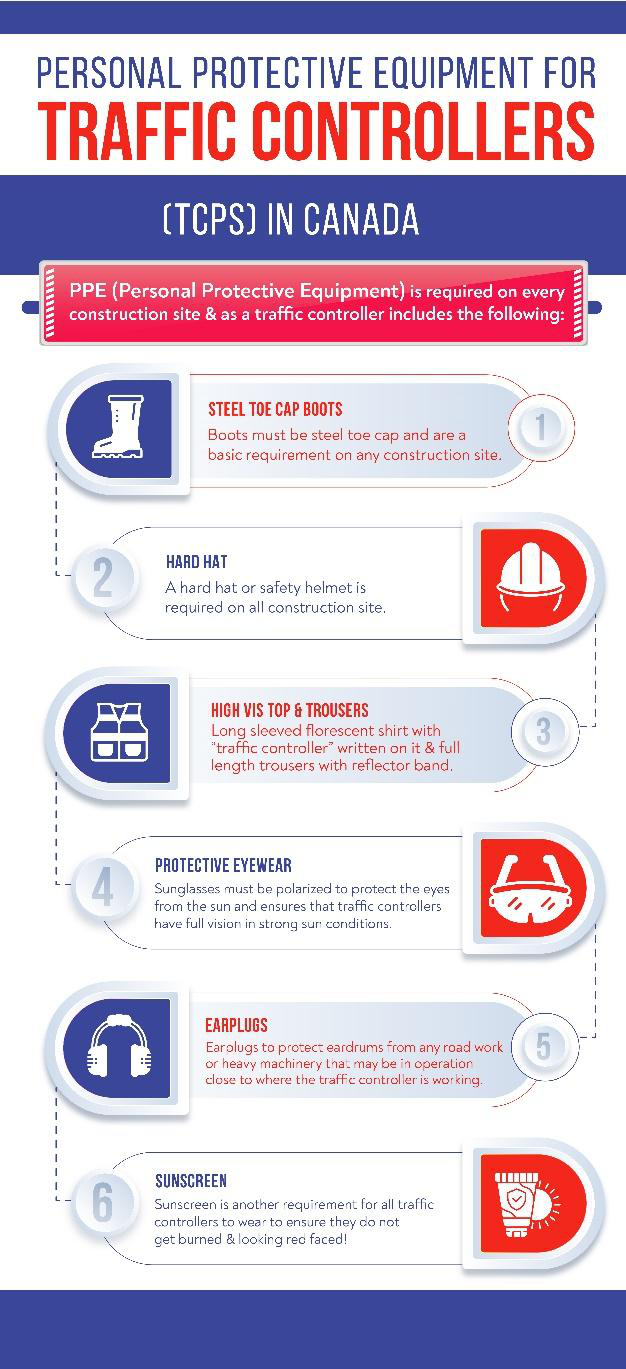
Advanced Techniques for Managing High-Traffic and Complex Work Zones
Managing traffic in high-traffic and complex work zones requires more than just basic traffic control skills. Advanced techniques are needed to ensure the safety of both workers and motorists, as well as to maintain the efficient flow of traffic. Some of the key advanced techniques covered in the Traffic Control Person (TCP) Training include:
1. Understanding Complex Work Zone Layouts
Work zones in high-traffic areas often involve multiple lanes, intersections, and access points, all of which require careful planning and management. TCPs must be able to set up and maintain safe work zones for both workers and motorists while minimizing disruptions to traffic flow.
One of the key aspects of managing complex work zones is understanding how to set up proper signage and barriers to guide motorists safely through or around the work zone. This includes the placement of traffic control devices such as cones, barricades, and signs to alert drivers to changes in traffic patterns. TCPs must also be able to adapt to changes in the work zone layout as the project progresses, ensuring that traffic control measures remain effective throughout the project.
2. Using Advanced Communication Techniques
Clear communication is essential for maintaining safety in high-traffic and complex work zones. TCPs must be able to communicate effectively with workers, motorists, and pedestrians to ensure that everyone is aware of the traffic control measures in place. This may involve using hand signals, two-way radios, or other communication devices to direct traffic and relay important information to other team members.
In addition to verbal and non-verbal communication, TCPs must also be able to interpret and respond to signals from other workers and motorists. This requires a high level of situational awareness and the ability to remain calm and focused in stressful situations.

3. Managing Traffic in High-Speed Zones
Traffic control in high-speed zones presents unique challenges, as vehicles are moving at higher speeds and have less time to react to changes in traffic patterns. TCPs must be trained in advanced techniques for managing traffic in these environments, including the use of traffic calming measures such as speed reduction zones and temporary traffic signals.
In high-speed zones, TCPs must also be able to anticipate and respond to potential hazards, such as erratic driving or vehicle breakdowns. This requires quick decision-making and the ability to implement traffic control measures that minimize the risk of accidents.
4. Working Around Heavy Machinery and Equipment
In many work zones, TCPs must coordinate traffic around heavy machinery and equipment, which can present additional hazards. Advanced TCP training includes techniques for managing traffic in these environments, including the safe movement of vehicles and equipment within the work zone.
TCPs must be able to work closely with equipment operators to ensure that traffic control measures are aligned with the movement of machinery. This may involve coordinating the timing of traffic stops with the operation of equipment, as well as ensuring that work zone boundaries are marked to prevent accidents.
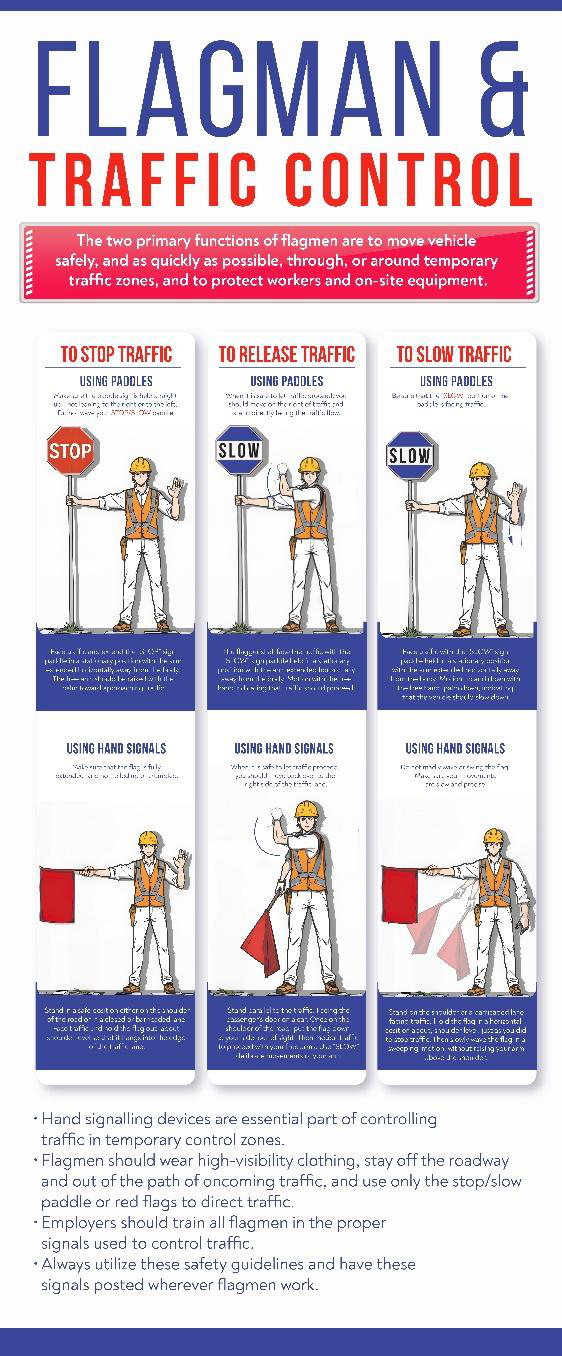
5. Adapting to Changing Conditions
Work zones are dynamic environments, and conditions can change rapidly due to factors such as weather, traffic volume, and construction progress. TCPs must be able to adapt to these changing conditions by adjusting traffic control measures as needed.
For example, in the event of an accident or other emergency, TCPs must be able to quickly implement traffic diversion measures to keep traffic flowing smoothly while emergency responders attend to the situation. Similarly, if traffic volume increases unexpectedly, TCPs must be able to adjust traffic patterns to prevent congestion and maintain safety.
6. Emergency Preparedness and Response
TCPs must be trained in emergency preparedness and response to ensure that they can handle a variety of emergencies, including vehicle accidents, medical emergencies, and hazardous materials spills. This training includes the proper use of emergency equipment, such as flares and warning signs, as well as the ability to communicate effectively with emergency responders.
In high-traffic and complex work zones, TCPs must be able to quickly assess the situation and implement traffic control measures that allow emergency responders to access the scene while minimizing disruptions to traffic flow. This requires a high level of coordination and communication with other workers and emergency personnel.

The Role of Advanced TCP Training in Improving Workplace Safety
By incorporating advanced traffic control techniques into their training programs, employers can significantly improve workplace safety in high-traffic and complex work zones. Proper TCP training ensures that workers are equipped with the knowledge and skills necessary to manage traffic effectively, reducing the risk of accidents and injuries.
In addition to improving safety, advanced TCP training can also enhance the efficiency of traffic management in work zones. By using advanced techniques to optimize traffic flow and minimize disruptions, TCPs can help ensure that projects are completed on time and within budget.
Other Related Safety Training Courses Offered by Metro Safety Training
In addition to Traffic Control Person (TCP) Training, Metro Safety Training offers a wide range of safety courses designed to meet the needs of workers in various industries. Some of the key courses include:
- Occupational Advanced First Aid Courses: This course is designed for workers who need advanced first aid training to respond to medical emergencies in the workplace.
- Intermediate First Aid Training Evening Courses Surrey: This flexible course is ideal for workers who need to complete their first aid training outside of regular working hours.
- First Aid Training Courses: Metro Safety Training offers a variety of first aid courses, including basic first aid trainingand Emergency First Aid (EFA) course.
- Confined Space Training Online: This course provides workers with the knowledge and skills necessary to work safely in confined spaces.
- Fall Protection Safety Plan: This course is designed to help workers develop and implement effective fall protection safety plans.
For workers in Surrey, Metro Safety Training also offers first aid training courses in Surrey, ensuring that local workers have access to the training they need to stay safe on the job.
If you are looking to enhance your skills in traffic control or need to train your workforce, consider enrolling in Metro Safety Training’s Traffic Control Person (TCP) Training. Our experienced instructors will provide you with the knowledge and hands-on experience you need to excel in your role and ensure the safety of your work environment.
Contact Metro Safety Training today to learn more about our comprehensive TCP training program and other safety courses!
